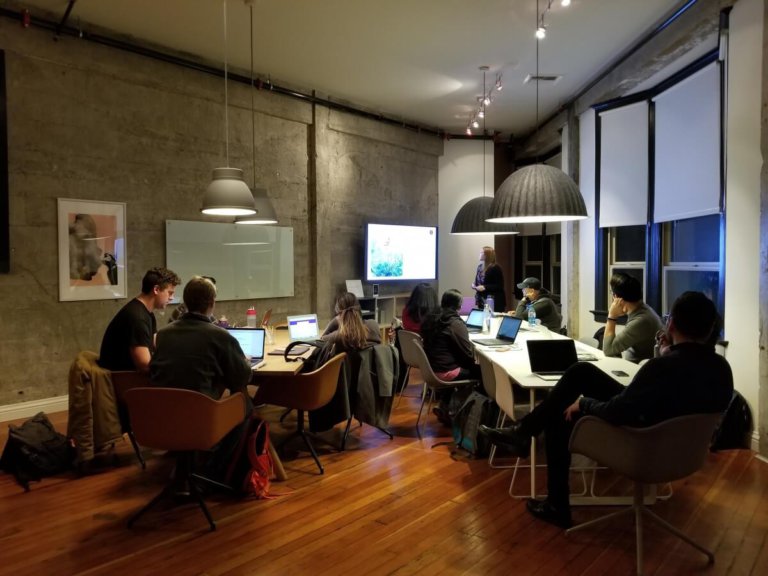
Allowing thoughts and ideas to flow seamlessly, fluent thinking is a creative skill that many students try to master and many educators actively encourage.
Reflective of agile thinking patterns, fluency of ideas is where creativity and innovation take flight in the classroom or in the lecture hall.
Triggering a flow of ideas, fluent thinking can lead to successful project growth or a clear demonstration of leadership in the workplace.

By bouncing ideas around with friends and professors, your fluent thinking will strengthen. Source: Toa Heftiba/Unsplash
Should fluent thinking transcend into study skills?
Highlighted as an essential skill in the latest Pearson report, The Future of Skills: Employment in 2030, fluency of ideas is a highly-regarded asset employees can take forward into future work environments.
“In the UK, it turns out that strengthening judgement and decision-making skills, fluency of ideas and operations analysis are important demand complements for many occupations.
“The results also emphasise the importance of higher-order cognitive skills such as Originality and Fluency of Ideas. Learning Strategies and Active Learning – the ability of students to set goals, ask relevant questions, get feedback as they learn and apply that knowledge meaningfully in a variety of contexts – also feature prominently,” the findings state.
By enlisting fluent thinking as a strategic study skills topic, universities can transform lectures into idea hubs, enabling students to speak up and share entrepreneurial ventures or interesting thoughts they may wish to discuss.
A fluent thinking exercise could be to solve a problem within a group and then to ask members to work together to create creative solutions.
Merging different angles, students can express their ideas and listen to others, and by analysing and discussing their answers together, the group creates a network of fluent thinking.
What’s the secret to surviving our new economy? Learning how to learn. It’s the one skill that can keep us all employed. pic.twitter.com/GLub0ex5GH
— Pearson (@pearson) November 20, 2019
Pearson also states that there would be a diverse group of occupations in the future where fluent thinkers would thrive, such as legal occupations, architecture and engineering occupations, computer and mathematical occupations, healthcare practitioners and technical occupations.
The report also compares the top 10 skills, abilities and knowledge associated with rising occupations in the UK and the US.
In the US, fluency of ideas makes 9th place as an idea skill to take into the future of work:
- Learning Strategies
- Psychology
- Instructing
- Social Perceptiveness
- Sociology and Anthropology
- Education and Training
- Coordination
- Originality
- Fluency of Ideas
- Active Learning
In the UK, fluency of ideas takes second place as an idea skill to take into the future of work:
- Judgment and Decision Making
- Fluency of Ideas
- Active Learning
- Learning Strategies
- Originality
- Systems Evaluation
- Deductive Reasoning
- Complex Problem Solving
- Systems Analysis
- Monitoring
Finding its way into a top 10 position, fluency of ideas/fluent thinking is an asset that universities should consider placing at the forefront of study skills sessions.
And with the future of work forecast appearing uncertain, fluent thinking could be the way for students to secure a future job.
Liked this? Then you’ll love…
How do student hackathons enhance study skills?
How do global virtual internships benefit your study skills?







